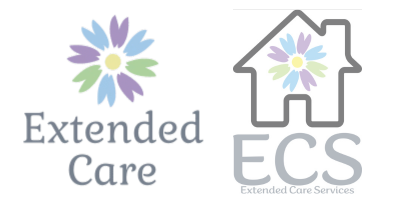For individuals with disabilities, establishing and maintaining connections within their community can be transformative, promoting social inclusion, personal growth, and a heightened sense of belonging. Supported community connections provide invaluable opportunities for persons with disabilities to engage in activities, programs, and social experiences that cater to their unique needs and interests. In this educational article, we will delve into the world of supported community connections, discuss the numerous benefits they offer, and highlight the critical role Extended Care plays in facilitating these connections for Ventura County residents.
Discover how establishing supported community connections can empower individuals with disabilities, leading to an enhanced quality of life, and uncover the resources and expertise available through Extended Care. Embrace the benefits of a connected, supportive community, and unlock the power of social inclusion and personal growth for adults with disabilities in Ventura County.
1. Understanding Supported Community Connections
Supported community connections encompass a wide range of activities, programs, and resources specifically designed to foster social inclusion and personal development for adults with disabilities. These connections can be facilitated through various service providers, including PASA agencies like Extended Care. The primary goal of supported community connections is to create an inclusive environment where individuals with disabilities can participate in meaningful, engaging experiences, tailored to their unique needs and preferences. Some examples of supported community connections include:
Community-based training programs focused on skill development and personal growth
Adaptive sports, recreational and leisure activities
Accessible volunteer opportunities and work experiences
Peer support groups and social clubs
2. Benefits of Supported Community Connections for Persons with Disabilities
Participating in supported community connections can bring a plethora of benefits for adults with disabilities, significantly enhancing their quality of life. Below, we’ll discuss various advantages that can be gained through these connections:
Social Inclusion and Sense of Belonging: Being part of a community-focused program fosters social inclusion and strengthens interpersonal relationships. This helps individuals with disabilities nurture a sense of belonging and build a strong support network.
Emotional Well-being: Engaging in meaningful activities with others of similar abilities can lead to increased self-esteem and confidence, resulting in improved emotional well-being.
Skill Development and Personal Growth: Supported community connections often provide opportunities for individual skill development and personal growth. By participating in various activities, individuals with disabilities can further develop their communication, problem-solving, and creative thinking abilities.
Increased Independence: As individuals with disabilities gain new skills and confidence through supported community connections, their ability to live a more independent and self-sufficient life also increases.
3. How Extended Care Facilitates Supported Community Connections
Extended Care, a reputable PASA agency, plays a vital role in fostering supported community connections for adults with disabilities within Ventura County. By leveraging its resources, connections, and expertise, Extended Care actively partners with various local organizations and service providers in the following ways:
Service Coordination and Planning: Extended Care collaborates with clients, host home agencies, and other service providers to develop personalized service plans that incorporate various community-based activities and programs according to the individual’s needs, preferences, and goals.
Resource and Referral Assistance: The agency helps individuals and their families navigate the vast network of available community resources, providing accurate, up-to-date information and referral assistance to ensure proper access to supported community connections.
Advocacy and Support: Extended Care also offers ongoing advocacy and support by coordinating with other community partners and monitoring the progress of clients engaging in various activities, programs, and services.
4. Practical Steps to Access Supported Community Connections
Building your network of supported community connections may seem overwhelming at first, but by taking the following practical steps, you can successfully unlock the myriad benefits they offer:
Assess Your Needs and Preferences: Begin by evaluating your personal objectives, interests, and areas where you’d like to develop further skills or knowledge.
Research Providers and Opportunities: Investigate local providers and available opportunities in your area through online research, attending community events, or seeking guidance from a PASA agency like Extended Care.
Utilize Your Support Network: Leverage support from family members, friends, and professionals who can help you identify suitable activities and programs while promoting your independence and self-confidence.
Be Adaptable and Persistent: Embrace challenges and be open to new experiences, understanding that finding the right fit may take time and persistence.
5. Importance of Family and Peer Support in Strengthening Community Connections
For adults with disabilities, the support and encouragement of family members and peers can be invaluable in establishing and maintaining strong community connections. They can play a significant role in:
Identifying Opportunities: Family members and peers can assist in identifying suitable supported community connections and encouraging participation.
Offering Emotional Support: As individuals engage in new experiences, their loved ones can provide the necessary emotional support and reassurance, fostering increased confidence and self-esteem.
Facilitating Logistics: Aligning practical aspects, such as transportation and time management, can be much easier with active involvement and support from family members and peers.
Overall, the collective efforts of individuals with disabilities, their families, and other support networks — including service providers like Extended Care — are essential in building a connected, inclusive community, where adults with disabilities can thrive and experience a fulfilling, high-quality life.
Conclusion
Finding the ideal home help service agency is vital for adults with disabilities striving for self-sufficiency and independence. By understanding the selection process, evaluating agencies, considering financial options, and collaborating with Extended Care, individuals can harness the support and resources essential for success in Ventura County. With a dedicated, person-centered approach, Extended Care remains committed to guiding adults with disabilities throughout the home help selection process, providing expertise, agency connections, and ongoing support to ensure a positive outcome. Contact Extended Care today to embark on a journey of discovering the right home service agency and unlocking a world of opportunities for adults with disabilities in Ventura County.

